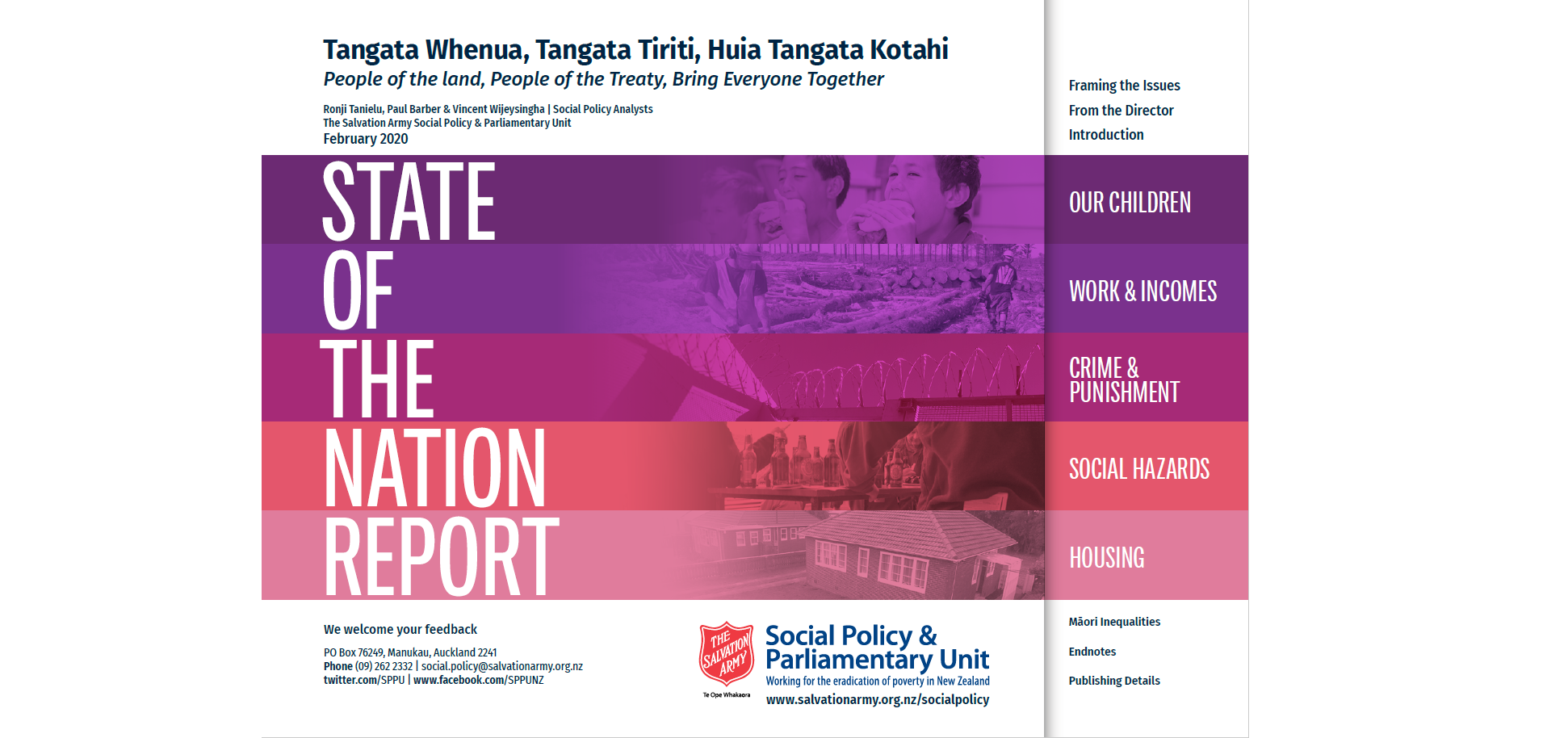Seven indicators improving, six worsening, with eleven sideways indicates a mixed bag for the latest State of the Nation according to the Social Policy and Parliamentary Unit of The Salvation Army.
A “mixed bag” was the summary comment at the presentation of Tangata Whenua, Tangata Tiriti, Huia Tanagata Kotahi. The report is the latest State of the Nation report published annually for more than a decade by the Social Policy and Parliamentary Unit (SPPU) of The Salvation Army.
Across a total of 24 indicators, seven are deemed to have improved, six have worsened, while 11 have gone sideways. While the report’s authors paint a balanced perspective on the outcome, a sense of disappointment at the lack of urgency for change underlies the commentary.
This is reflected in comments from the SPPU Direct or the SPPU, Lieutenant-Colonel Ian Hutson:
“It is heartening to see a ‘people-oriented’ emphasis adopted by economists and the current Government, with wellbeing increasingly incorporated into measures of economic prosperity.
However, we do not see the change required to deal with normalised, entrenched inequality and poverty in New Zealand. Many key indicators of social concern are not improving: the increase of people on the social housing register; the affordability of housing in Auckland and now the regions; and no decrease in 10 years for children in deepest poverty.
This report indicates that change has not yet taken place to remedy this situation—not surprising as governments often struggle to make courageous changes when its citizens do little to endorse the changes required.”
… that we celebrate the introduction of a 0.8 per cent per day interest rate cap on predatory lending as “an improvement” is a sobering indication that we are a long way from significantly helping those grappling with almost insurmountable odds.
Convincing those citizens that remain comfortable that there are many others across the nation that are far from comfortable is indeed one of the biggest challenges. Housing affordability and debt continues to worsen. In such a context, that we celebrate the introduction of a 0.8 per cent per day interest rate cap on predatory lending as “an improvement” is a sobering indication that we are a long way from significantly helping those grappling with almost insurmountable odds.
The report is an invaluable resource for those wanting a snapshot of the nation and evidence of the strains, stresses, and inequities facing families, whānau, and communities of Aotearoa.
The full report is available at https://www.salvationarmy.org.nz/research-policy/social-policy-parliamentary-unit/latest-report
